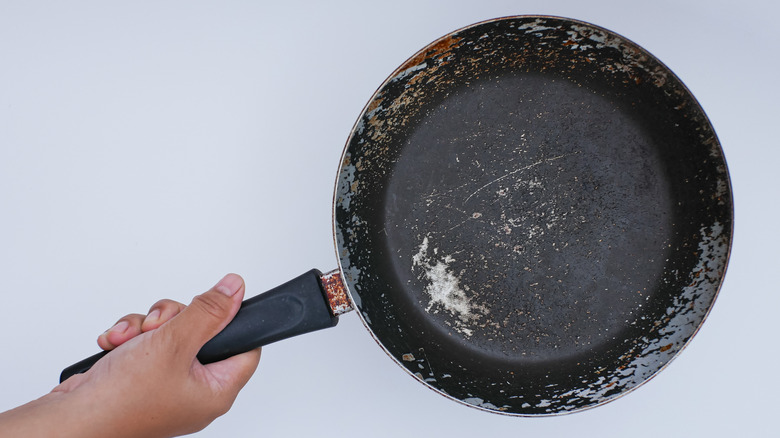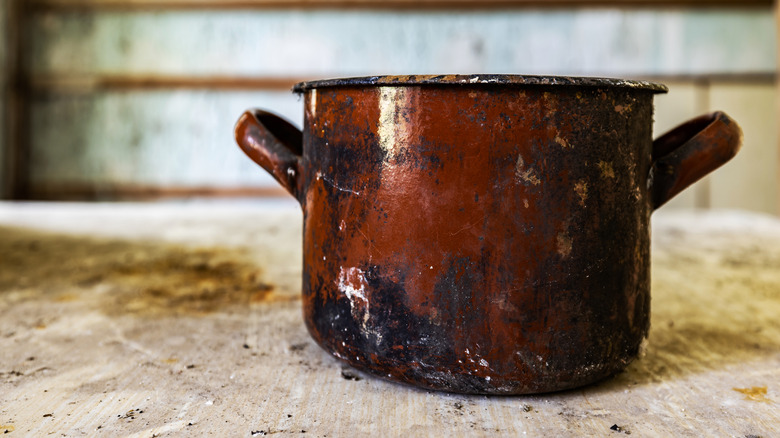How To Safely Dispose Of Cracked, Chipped, Or Warped Cookware
Choosing the right cookware is a lifelong journey, and you're obviously going to have a few blips along the way. You might find that the nonstick pan that claimed it was dishwasher safe has had its nonstick surface fade away much sooner than you expected or your cast iron skillet has unfortunately become more rust than metal (get yourself a carbon steel pan which will last you a lifetime). A few careless swipes with a metal turner or one too many blasts of high heat on a pan that wasn't made for such extreme temperatures and you've got basically useless cookware that needs disposing of. But how?
You'll want to avoid putting pots and pans in with your regular garbage if you can help it. Since they're made of metal, they can actually be recycled. If you live in a city with recycling depots, you can give them a call or a visit and ask if they accept old cookware. If they don't, you have another option and it's even more convenient.
For a fee, the company TerraCycle will ship out one of their Kitchen Gear zero-waste boxes (they come in three sizes). You put the old cookware in the box, and when it's full you send it back using a prepaid shipping label. It could not be easier, though it is on the pricey side — the smallest-sized box costs a hefty $157.
Why you want to get rid of your beat up cookware
Hey, we get it — we like to keep an absolutely disgusting sheet pan in the kitchen for all the ugly, messy jobs. That being said, there are good reasons to get rid of cookware that is more than a little busted up. First, if you have a pan that's become warped from plunging it into cold water while it was still hot off the stove, it's not going to sit flat anymore. That's not necessarily a safety hazard, but it does mean your food (especially your proteins) could cook a bit unevenly, with some parts that are more done than others thanks to their closer proximity to the heat source.
If your nonstick pan is starting to lose its protective coating, flakes of the coating can actually get into your food. Apparently ingesting these flakes isn't harmful (though we have our doubts), but it's definitely unappetizing. There are also safety risks involved when using cracked or chipped cookware. For example, if there's any metal exposed at the surface it could leach the material into whatever you're cooking.

